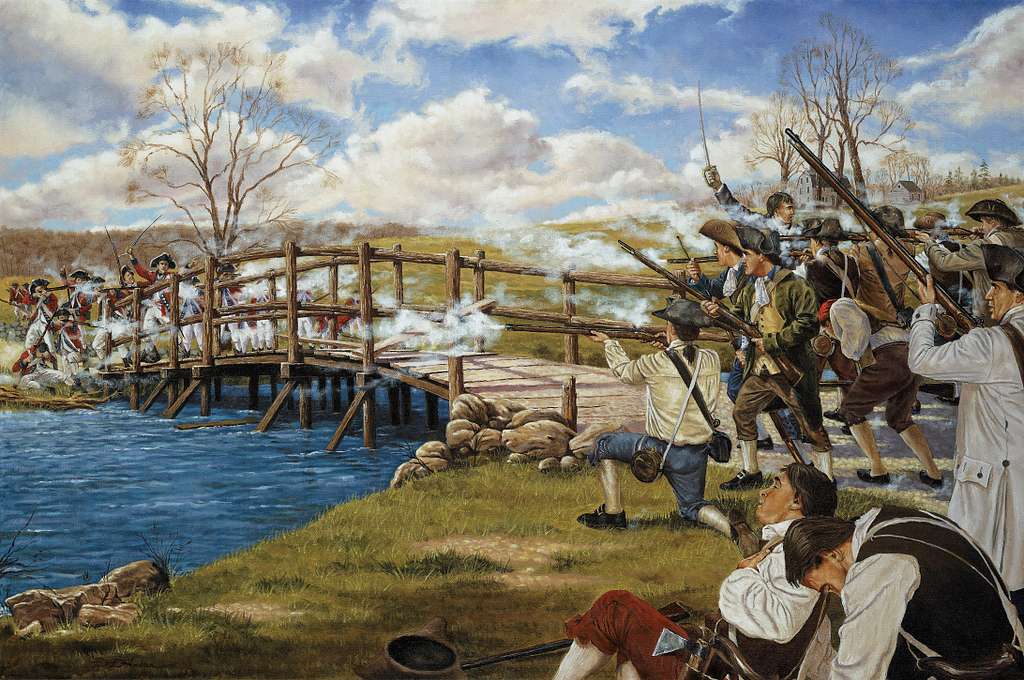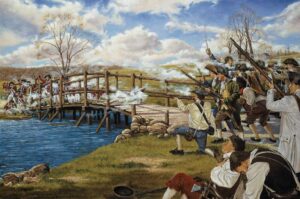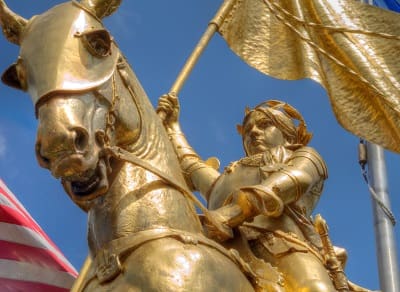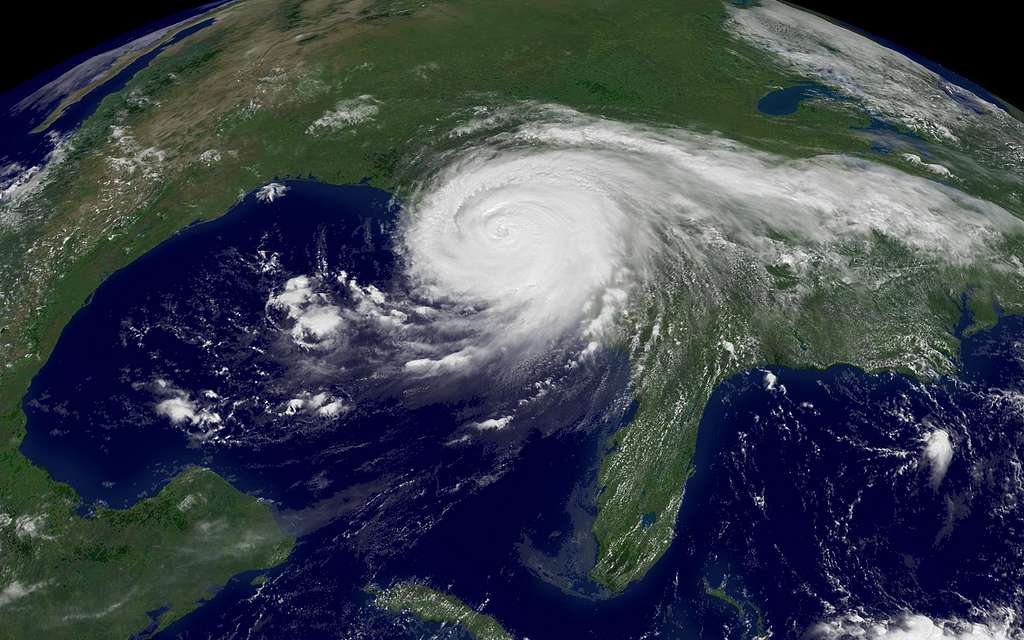The shot heard round the world, 250 years later

(April 19, 2025) It would be a tragedy if we discover that the shot heard round the world no longer echoes.
Two hundred and fifty years ago today [last Saturday], after the famous “Midnight Ride” by Paul Revere warned the populace that the British were coming, colonists in Concord, Massachusetts, responding to British shots fired earlier at Lexington and then there at Concord’s bridge, fired back at the British. The greatest revolutionary war in history had begun.
By “greatest,” I don’t mean largest. I mean most consequentially beneficial. Yet the anniversary so far seems to elicit little more than mild nods of assent — and, from most of those under, say, age 50, completely uninterested shrugs. I’ve written and spoken in other forums about an incident 15 years ago when, at a meeting with the creamiest of the cream of the collegiate crop, not one in ten even recognized either of two famous passages from the Declaration of Independence. Worse, when apprised of the passages’ origin, none of them even cared.
I nearly cried.
Fifty years ago today, one of the most seminal experiences of my life began. Fifty years ago, the whole country began notably gearing up for the nation’s Bicentennial celebration that would culminate 15 months later on July 4, 1976. The celebration’s kickoff, as it were, was the commemoration of the 200th anniversary of Lexington and Concord.
There seemed to be an air of magic to it all, a sense of adventure and valor and epic importance. The lines of poetry stirred the imagination: “Listen my children and you shall hear of the midnight ride of Paul Revere” (Longfellow) and “By the rude bridge that arched the flood/Their flag to April’s breeze unfurled/Here once the embattled farmers stood/And fired the shot heard round the world” (Emerson).

The experience — the whole 15 months, not just the commemoration of the “shot” — was seminal because, as we who were 11 or 12 years old at the time could readily grasp, this was important. As the school lessons repeatedly focused on, and as evening newscasts frequently reported on, each event commemorated en route to the nation’s formal Bicentennial was an event where an extremely fragile freedom hung in the balance. Because freedom — by virtue of tenacity and principle and courage — was secured through both the fighting and the (small ‘r’) republican self-determination of the revolutionary colonists, the result was that generations then yet unborn were to enjoy lives more humane, opportunities more vast, personal horizons more open, than any prior generations in human history…. [The full column is at this link. If it is firewalled and you want to read it and especially if you want to share it with a younger person, please email me at Qhillyer@Gmail.com.]





